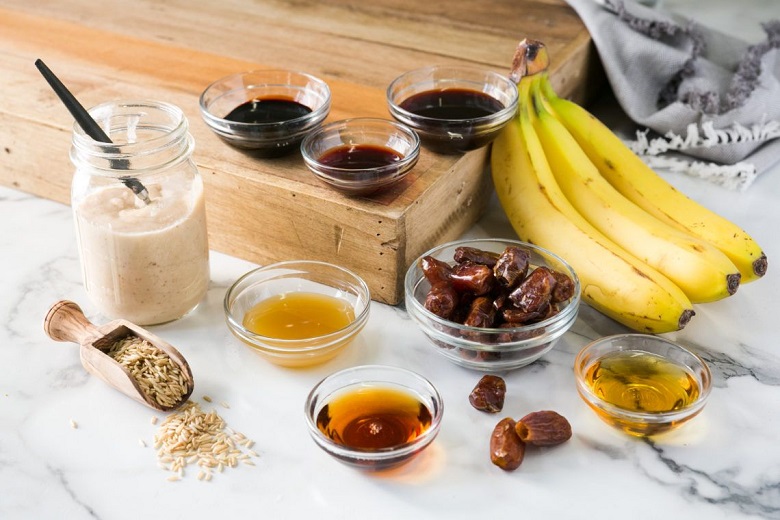Baking Without Sugar: The Best Healthy Natural Sweeteners for Gluten-Free Recipes
Contents
If you’ve ever tried unsweetened chocolate, then you know how unsavoury it tastes. Sugar is what gives our desserts a palatable and desirable flavour, however, it can be harmful to our health. If you are trying to make small improvements to your diet, know that there’s a wide range of healthy natural sweeteners that offer the flavour benefits of refined sugar with fewer consequences.
What Is a Healthy Natural Sweetener?
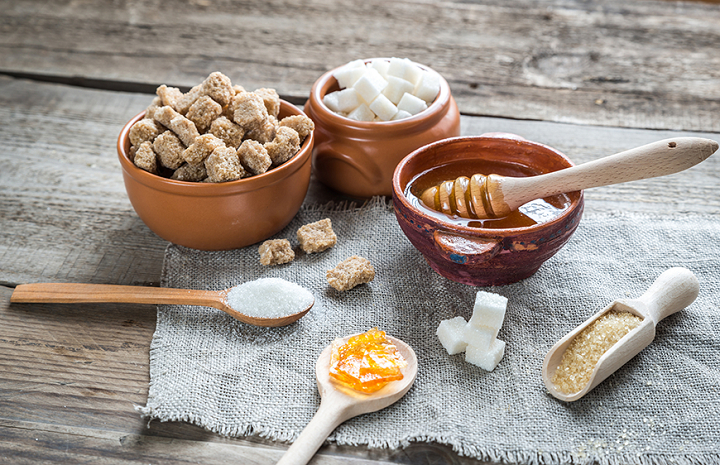
source: insights.ibx.com
Natural sweeteners are sugars that haven’t been chemically refined and haven’t been stripped of all their nutritional value. Great examples of natural sweeteners include honey, coconut sugar, agave nectar, monkey fruit, maple syrup, among others. Although natural sweeteners are a healthier option than refined sugars, it is important to understand that all sweeteners should be used in moderation as even the healthiest option can still affect your blood sugar levels as well as lead to weight gain.
How to Substitute Sugar in Your Recipes
When it comes to substituting sugar in a recipe, you need to keep in mind that sugar not only adds sweetness to baked goods but also structure, texture, flavour, moistness and contributes to browsing as well. This means, replacing sugar in your recipes will require a balance with other ingredients.
However, with a little time and testing, you’ll be able to make delicious sugar-free baked goods in no time! Here is a handy guide with suggestions on healthy natural sweeteners for baking and how to use them properly.
Coconut Sugar
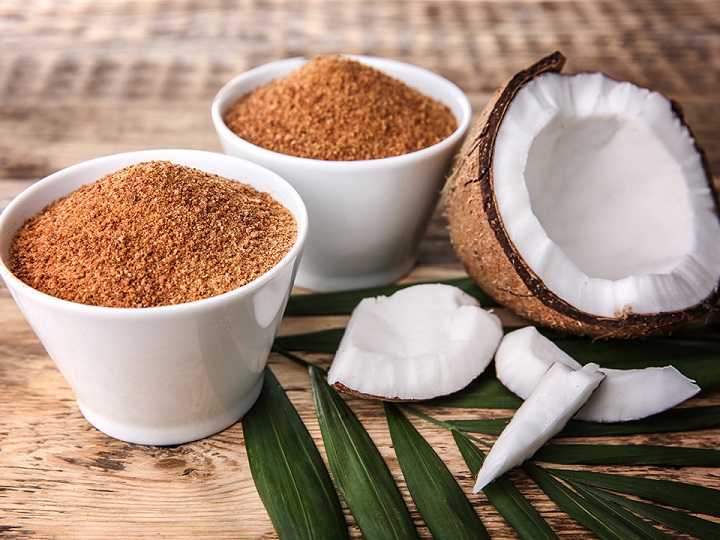
source: naludamagazine.com
Extracted from the sweet nectar of blossoms found on coconut palms, coconut sugar is a great healthier alternative to the standard sugar. That is because once heated, most of the water from the nectar evaporates, leaving golden crystals similar to sugar. Coconut sugar is known to contain minerals like zinc, iron and potassium, fatty acids, polyphenols and antioxidants. It’s equal to sugar in calories and carbohydrates but its inulin content can help slow glucose absorption giving it a lower glycemic index than sugar.
How to Use It
Replace cup for cup. Coconut sugar is not refined as regular sugar, so it won’t cream as smoothy and the baked goods may end up with a speckled look with more air pockets.
Stevia
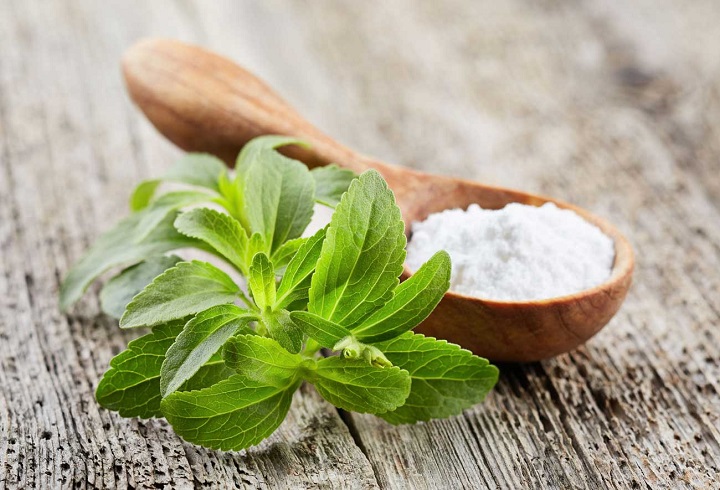
source: techexplorist.com
Extracted from the leaf of the stevia plant, in its unprocessed form, stevia is a zero-calorie sugar supplement that is completely natural and even offers certain health benefits. Research has reported that stevia can actually help lower insulin levels and blood sugar and can even improve oral health.
How to Use It
Because stevia can be 100-300 times sweeter than sugar, for every cup of sugar, use 1 teaspoon of stevia and add 1/3 cup of a substituting liquid, like applesauce. Make sure you use stevia only with baking temperatures below 200 celsius or it will break down at higher temperatures.
Agave
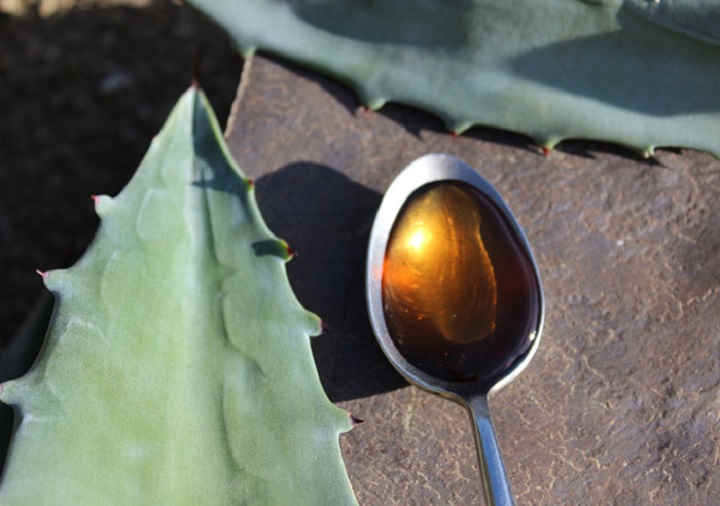
source: superfoodevolution.com
When shopping for natural sweeteners, you’ll find two types of agave syrup available: light and dark. Dark varieties mean the sweetener has been heated longer, which gives it a slight caramel taste. Light agave is similar to maple syrup and honey. When compared to sugar, agave has the same calories per teaspoon. But because it’s sweeter, you can use less of it, which helps decrease your calorie count. Agave is also considered a healthier option than regular sugar due to its low glycemic index.
How to Use It
For each cup of white sugar called in the recipe, use 1/4 to 3/4 of agave syrup, depending on which type you choose. Reduce other liquids by 1/4 to 1/3 cup. For example, to replace 1 cup of sugar, use 2/3 of a cup of agave syrup and reduce the other liquids called in the recipe by 1/4 cup.
Honey
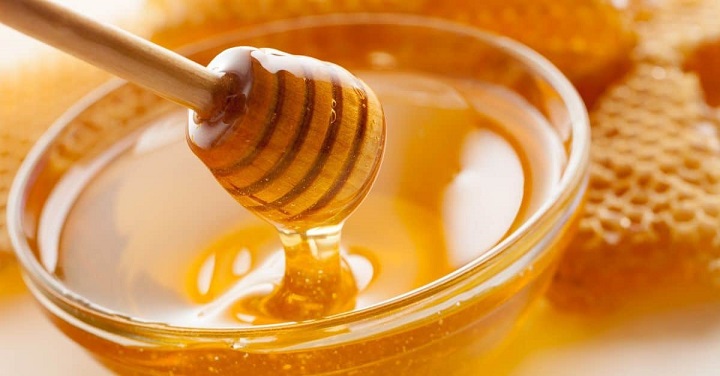
source: justplaincooking.ca
The raw and unpasteurized variety of this classic product is not only a delicious way to add a little sweetness to your baked goods but also an easy way to boost your health. When shopping for honey, make sure the product you’re getting is not processed honey, which can contain added sugar.
While honey is not totally 100% vegan, it be may be a suitable choice for less strict vegetarians and omnivores.
How to Use It
Honey attracts moisture, so it’s a definite plus in gluten-free baking. Use 1/2 to 2/3 cup for every cup of sugar called for and decrease the liquid called in the recipe by 3 tablespoons.
Maple Syrup
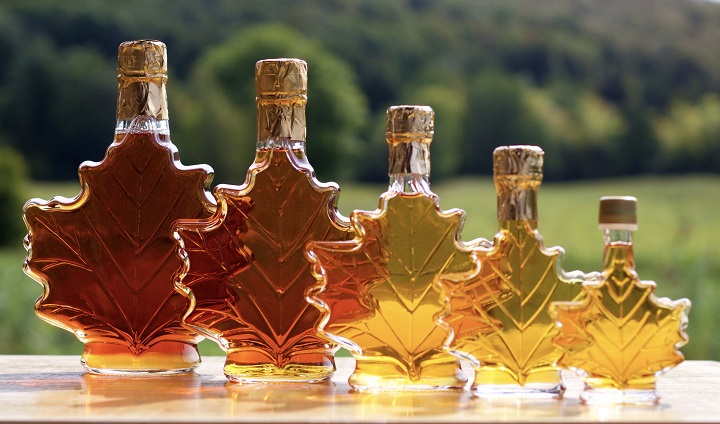
source: healthcautions.com
Like with honey, pure maple syrup (not mass-market syrups packed with added sugar) is a great way to naturally fix your sweet. Aside from being the perfect pair with pancakes, pure organic maple syrup also contains antioxidants and minerals like zinc. Maple syrup is 60% as sweet as sugar and has similar calories.
How to Use It
For every cup of sugar use 3/4 cup of maple syrup, and reduce the amount of liquid called in the recipe by 3 tbsp.

